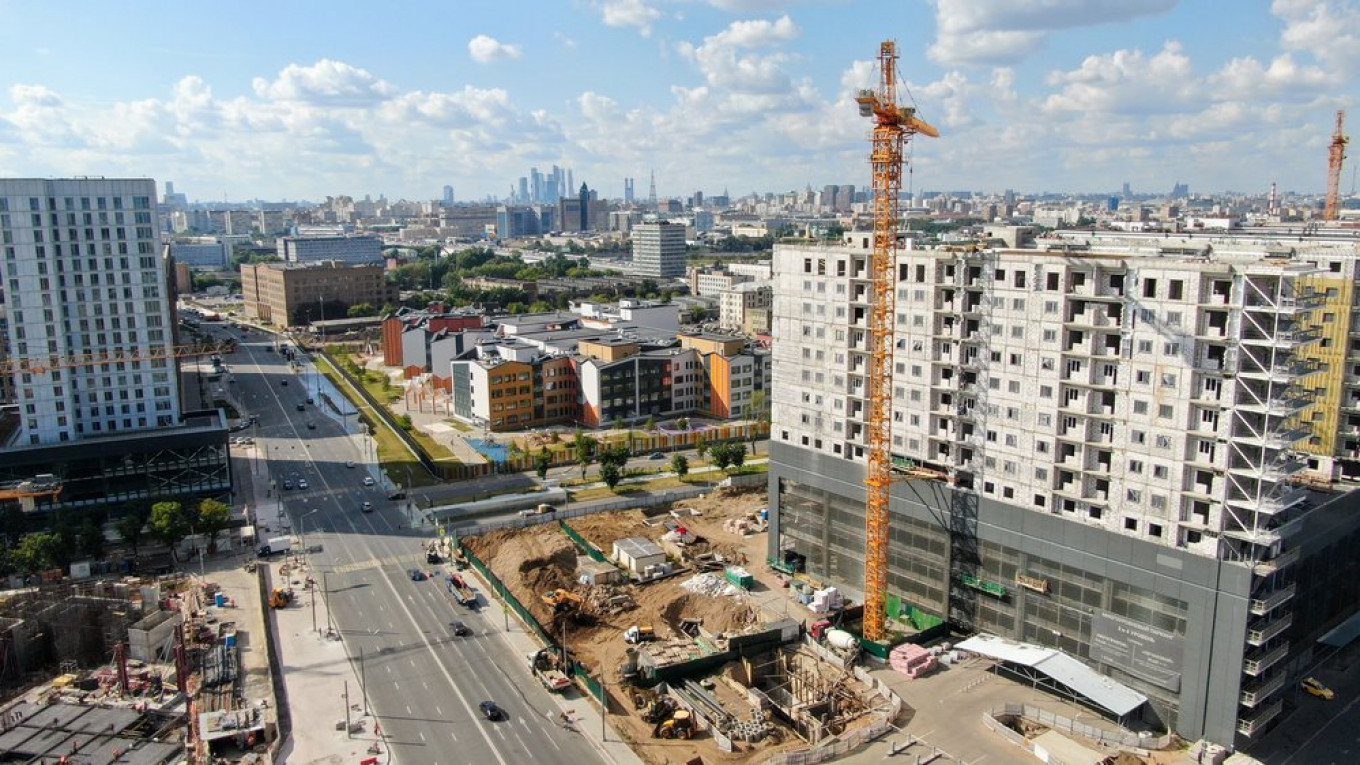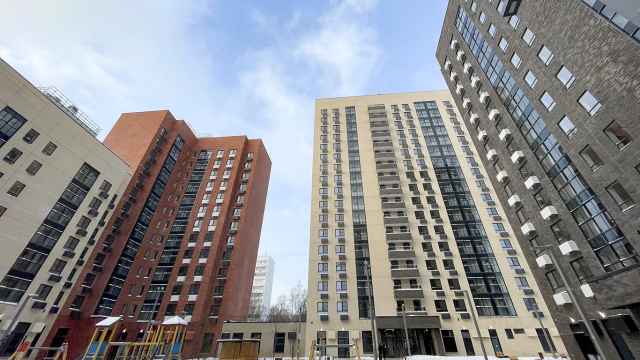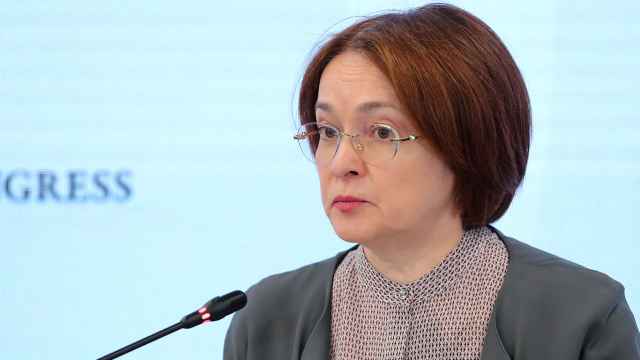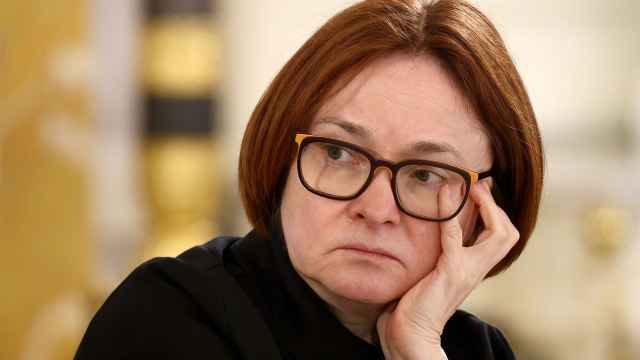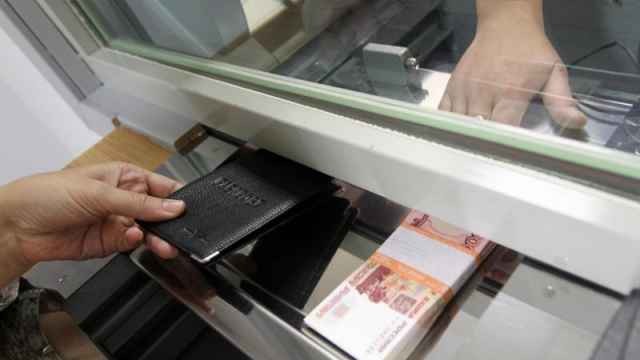Later this week, one of the fastest growing Russian businesses of the last decade will launch on the Moscow stock market — the latest in a small flurry of Russian public offerings set to close out the year.
Property developer Samolet was founded just eight years ago, but it has grown aggressively, building more than two million square meters of apartment space in the hottest part of Russia’s housing market — Moscow and its surrounding suburbs. The company has another 15 million square meters in its land bank for development over the coming decades, and this week’s initial public offering (IPO) could value the firm at as much as $860 million.
Prospects for Samolet — Russian for airplane — have soared in recent years. The property development industry has been a big beneficiary of various government policies to boost construction and expand home ownership. Falling interest rates following the 2014 economic crisis, government support programs such as the “maternity capital” allowance which gives families coupons to spend on down payments, and a general explosion in the use of loans, credit cards and borrowing have helped more Russians get a foot on the housing ladder than ever before over the last few years.
The government’s response to the coronavirus crisis has again put construction and home ownership at its core, helping to propel the industry even faster in 2020 with a new program of subsidized mortgages which allows borrowers to get a housing loan at just 6.5% for a newly built apartment. That rate — while high by Western standards — would have been almost unthinkable in the Russian market even just a few years ago when the average lending rate topped 14%.
Russians have not held back from snapping up mortgages at these record low levels. In August, Russian banks approved the second-highest number of mortgages in history according to Central Bank data — 48% more than last August. The total value of mortgages dished out over the month rose even faster, up two thirds to almost 400 billion rubles ($5.2 billion).
This breakneck acceleration in Russia’s mortgage market — and in particular in Moscow — has left banks, buyers, estate agents, analysts and the country’s Central Bank pondering whether the market is on the verge of a bubble, or if the economic crisis is just another chance to boost Russia’s still-small mortgage market.
Central Bank governor Elvira Nabiullina has given her conditional support to the extension of the government’s mortgage subsidies which are now set to run until at least the middle of next year and provide almost two trillion rubles ($26 billion) in cheap funding for at least 600,000 new apartments. When it finishes, the program could account for one fifth of Russia’s outstanding mortgage stock.
Bubble brewing?
“The program is very effective in stimulating demand and has demonstrated itself as a very successful anti-crisis tool,” Nabiullina said during a press conference Friday. “But looking to the future, we must think about the consequences. Right now, we don’t see signs of overheating, but we need to be very cognizant.”
“We must also remember why we need this program: to increase the availability of housing,” she added, highlighting that if it causes house prices to rise beyond the reach of most Russians, the program will have “cannibalized” itself.
Other fears of a bubble stem from the economic backdrop, against which the rapid increase in mortgages in unfolding. Russia has not escaped the worldwide coronavirus recession, with GDP set to fall by around 4-5% this year.
“The rapid growth of mortgage lending — against the backdrop of a decrease in real incomes — may lead to negative consequences which last several years,” warned Alexander Pypin, founder of real estate analytics site Dataflat.Ru. He fears a possible increase in distressed borrowers which might cause the government to have to intervene to prop up households, banks or the housing market in case it falters.
Some worry property developers may be pushing the program too aggressively.
“Developers are very active in advertising the possibility of obtaining a mortgage with a reduced loan rate,” said Dimitri Taganov, head of the analytics department of Inkom Real Estate. “Often borrowers attracted by these messages do not assess their financial capacities sensibly.”
Playing catch-up
Most analysts, however, share Nabiullina’s assessment of the situation: aware of the risks, but seeing the current housing boom as a bright spot in the economy helping to fuel the construction industry, revitalize Russia’s Soviet housing stock and potentially put the housing market on a path to long-term development.
They highlight that the recent growth comes from a very low base.
“While the share of transactions involving mortgages in the Moscow housing market is gradually growing,” said Sergei Shloma, director of the secondary housing market department at Inkom Real Estate, “it is still impossible to compare us with European countries.”
Russia’s total outstanding mortgage debt should come in this year at around 8% of GDP, compared to 50% in the U.S. and 30-40% across Europe.
Experts also point out that Russia’s mortgage market is no stranger to rapid growth. Mortgage debt has increased by at least 12% in each of the last seven years — far ahead of economic growth, inflation, incomes and most other economic indicators.
Mortgages themselves are becoming more affordable, both those covered by the government program and those that aren’t. Amid successive interest rate cuts from the Central Bank, the average mortgage rate in Russia was 7.17% in August 2020 — down from more than 10% at the start of last year and more than 14% five years ago.
“People right now are really in a rush to take loans, because they remember just a few years ago when interest rates were around 10%,” said Alfa Bank chief economist Natalia Orlova.
Strong foundations
Perhaps the most crucial factor in the mortgage rush is the role of the government, Orlova added. The state was highly committed to supporting the housing market “on all fronts” even before the coronavirus crisis, she said.
The maternity capital program, for instance, provides 400-500 billion rubles ($5-6 billion) a year for families to use on down payments — often the biggest obstacle to taking out a mortgage. Housing is a central plank of Russia’s high-profile National Projects agenda which outlines the state’s socio-economic priorities for the next decade. Regional governments, particularly in Moscow, are also very developer-friendly, she said. And the fact that state-controlled banks are behind around three quarters of the mortgage market adds another layer of protection.
Analysts say the most closely-watched indicator for signs of a bubble will be house prices. Here, too, Russia appears to have space to make up for lost ground. Property prices have risen at a rate slower than inflation over the last decade — a trend which started to reverse around 18 months with fast increases in prices, particularly for new apartments in Moscow and around the capital.
Estate agents are also reporting rapid increases since the launch of the subsidized mortgage program.
“We have several examples where pre-sale prices have grown by 10% in a month,” said Kristina Tomilina, director of residential sales at Savills Russia, referring to prices for new apartments.
Real estate database Cian says prices for new builds have risen 19% per square meter since the start of the year in Moscow.
A key test for the market will be when the program is wound down next summer. Nabiullina is concerned about a possible “dramatic” fall in demand in the months that follow, as anybody who was considering buying an apartment would have brought forward their purchase to capitalize on the program. That has the potential to create a vicious spiral of falling prices, weak demand and reduced activity.
The Central Bank repeatedly insisting it has the program on close watch is a sign that the market might not be allowed to get too frothy. Inkom Real Estate’s Shloma says he expects prices to fall after the program ends — in a repeat of what happened in 2015-18 following a burst of purchases at the end of 2014.
But Russia has learned from other crises, he said.
“Russia is not in danger of a mortgage collapse like the 2008 one in the U.S. In our country, the situation is completely different.”
The notion of taking out multiple or 100% mortgages is not part of the mix, he said, stressing that the fundamentals are much more secure than those which saw the U.S. market go into meltdown.
“For Russians, real estate is a guarantee of stability in case of a socio-economic shock.”
A Message from The Moscow Times:
Dear readers,
We are facing unprecedented challenges. Russia's Prosecutor General's Office has designated The Moscow Times as an "undesirable" organization, criminalizing our work and putting our staff at risk of prosecution. This follows our earlier unjust labeling as a "foreign agent."
These actions are direct attempts to silence independent journalism in Russia. The authorities claim our work "discredits the decisions of the Russian leadership." We see things differently: we strive to provide accurate, unbiased reporting on Russia.
We, the journalists of The Moscow Times, refuse to be silenced. But to continue our work, we need your help.
Your support, no matter how small, makes a world of difference. If you can, please support us monthly starting from just $2. It's quick to set up, and every contribution makes a significant impact.
By supporting The Moscow Times, you're defending open, independent journalism in the face of repression. Thank you for standing with us.
Remind me later.



